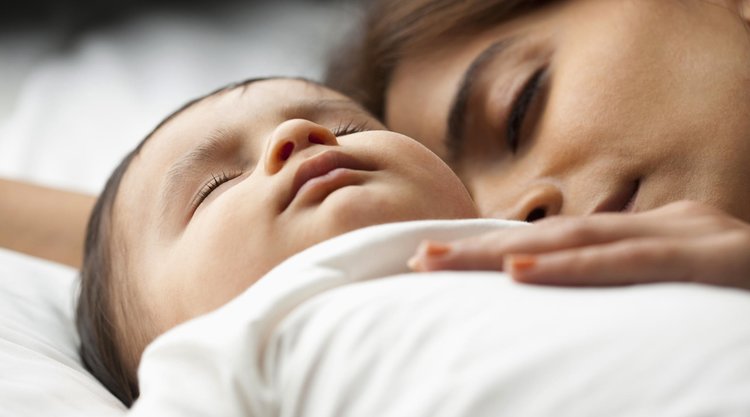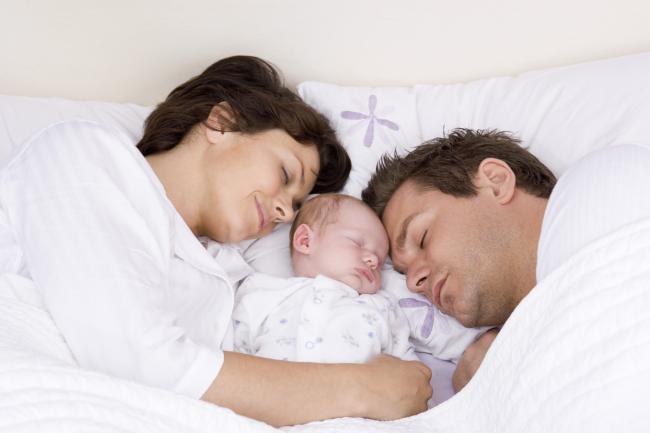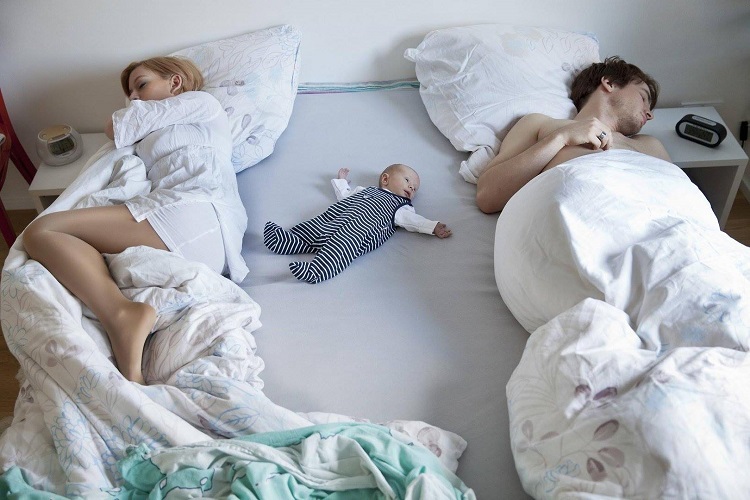The idea of co-sleeping with your child may seem to be old school to many who prefer to let their child sleep in a different room or bed right from the early years. According to anthropologist Emmy Elizabeth Warner, “90 percent of cultures, infants slept with their parents, and not in cradles or cribs.” Co-sleeping is not just a thing of the primitive culture. Modern day Japanese, Indian and in several other eastern cultures, co-sleeping exists till the child reaches his early school years. While many parents feel it is safe for the baby to sleep in a crib than in a bed with them due to the fear of SIDS, with a little precaution taken, co-sleeping with your child boosts a child’s personality in more ways than one. Let’s look at how co-sleeping affects a child’s personality.

Children grow as, Independent adults
While this may sound a little absurd since co-sleeping is perceived to make children clingy to their parents while sleeping separately is believed to foster independence in children. According to a research by Kids Internet Radio, co-sleeping encourages independence and autonomy in growing children. The physical contact, attachment and attention that comes with co-sleeping creates a greater sense of satisfaction and satisfies the needs of children making them grow independent and aids in overall psychological development in children.

Physical Health Benefits
Per Kids Internet Radio, children who co-sleep have better short term and long term health benefits. Anthropologist and sleep researcher James McKenna from Notre Dame states that babies are calmer in the presence of parents and cry less. Thus, have lesser levels of stress which means lesser release of stress hormone cortisol which hampers the immune system. Plus, they are breast fed more often which in turn boosts their immunity.
Children are happier
Research shows that children who co-sleep are better at handling stress and because of the human contact feel more satisfied and fear less which helps in the adequate mental and physical development.
Improved self-esteem
According to reports of Healthy Child, children who co-slept experience lesser guilt. Parental acceptance which accompanies co-sleeping habits boosts self-confidence in children and they throw lesser tantrums and lower levels of irritation.

More affectionate
According to a study conducted by R.J.Lewis and L.H.Janda for Healthy Child state that female children who co-sleep with their parents are more open to physical contact and affection in the later stages of life. They exhibit lesser discomfort to hugs, physical contact and are more loving as adults.
Lower levels of anxiety
Children who co-slept with their parents have lower levels of fear and anxiety and are less prone to sleep anxiety. Children sleep well and are less likely exposed to fear and worry around the bedtime.
Co sleeping or putting the baby in a crib or in their room is completely a personal choice. Each parent has their own compulsions and they need to take a decision depending on what is more suitable to the family. It was our choice to co-sleep with our daughter and many people have advised us against it. However, we do not see any problem and love the hugs and the kicks. This is something we feel we will only enjoy for a few years and if it can help her personality in some way, then we are happy with our decision. Wherever your child sleeps, that angel like innocent look on their face is the best thing at the end of a tiring day. As Maria Jose Ovalle put it so beautifully, “Despite having a million things to do, it is very difficult to look away from my sleeping baby. She is like a magnet.”





[…] Never force a child to sleep in their own bed till they are ready. Co-sleeping has its own benefits and so does sleeping in their own bed. However, allow your child to make the decision himself. Forcing them to use their own room or bed when they aren’t ready will only develop anxiety and restless in them and at times, sleep deprivation. (Read the post, Co-Sleeping Can Affect Your Child’s Personality) […]
[…] (You may like to read our post, Co-sleeping affects your Child’s Personality) […]